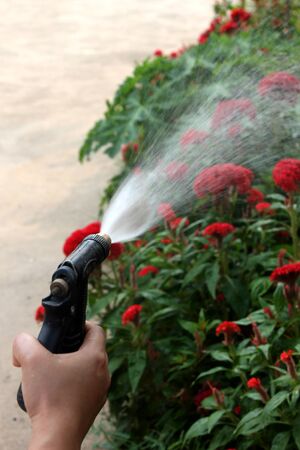Introduction: Why Choosing the Right Leaf Blower Matters
If you’ve ever spent a Saturday afternoon wrangling piles of leaves or tackling lawn debris, you know just how valuable a good leaf blower can be. But not all yards—or homeowners—are created equal, which means that picking the perfect leaf blower is more than just grabbing whatever’s on sale at the hardware store. Your yard size, your physical comfort, and even your neighborhood’s environmental standards should all factor into your decision. Whether you’re looking to clear off a small patio or keep up with a sprawling backyard full of mature trees, choosing between electric, cordless, and gas-powered leaf blowers can make all the difference in efficiency and satisfaction. Taking time to consider your personal needs as well as environmental impact ensures you’ll end up with a tool that’s not only effective but also sustainable and easy to use for years to come.
Electric Leaf Blowers: The Quiet and Clean Option
When it comes to choosing the right leaf blower for your yard, electric models often stand out as the quietest and cleanest option available. These corded electric blowers are a favorite among homeowners who want to keep their outdoor spaces tidy without disturbing the peace or harming the environment. Lets break down what makes electric leaf blowers an appealing choice for many American families, especially those with smaller yards.
Benefits of Electric Leaf Blowers
One of the biggest draws of corded electric leaf blowers is their eco-friendliness. Unlike gas-powered models, electric blowers dont produce emissions or require oil and gas mixtures, making them a more sustainable choice for environmentally conscious folks. Theyre also much quieter, which means you can clear your driveway or patio early in the morning without waking up the whole neighborhood. Plus, with no need to mess with gasoline or pull-starts, these machines are incredibly easy to use—just plug them in and go.
Key Advantages at a Glance
| Feature | Electric (Corded) Leaf Blower |
|---|---|
| Noise Level | Low – Neighborhood-friendly operation |
| Environmental Impact | No direct emissions; energy efficient |
| Ease of Use | Simple plug-and-play design; lightweight |
| Maintenance | Minimal – No oil changes or fuel storage needed |
Limitations to Consider
While corded electric blowers offer plenty of perks, they do come with a few trade-offs. The most obvious is their reliance on a power cord, which limits mobility. If you have a large or oddly-shaped yard, managing the extension cord can become a hassle—and youll always need access to an outdoor outlet. Additionally, these models generally provide less blowing power compared to gas units, so they might struggle with wet leaves or heavier debris.
Are Electric Leaf Blowers Right for You?
If your yard is on the smaller side and you value quiet operation and easy maintenance, a corded electric leaf blower could be just what you need. Theyre perfect for patios, driveways, and small lawns—especially if youre looking for an environmentally responsible way to keep things tidy. Just remember that while theyre great for light-duty jobs, bigger properties or heavy fall cleanups may require something with a bit more muscle.
![]()
3. Cordless Leaf Blowers: Flexibility and Freedom
When it comes to striking a balance between power and convenience, cordless leaf blowers—also known as battery-powered blowers—are an increasingly popular choice for American homeowners. One of their standout features is exceptional maneuverability. Without a cord to drag around or get tangled in shrubs and patio furniture, you’re free to move across the yard with ease, making these blowers especially handy for medium-sized suburban properties where outlets might not always be nearby.
Battery life is a key consideration with cordless models. Modern lithium-ion batteries provide anywhere from 20 to 60 minutes of run time on a single charge, depending on the model and the blower’s power setting. For most typical yard cleanups—think clearing leaves off driveways, patios, and lawns—this is usually plenty. However, if you have a larger property or lots of heavy debris, you may want to keep an extra battery charged up just in case.
Cordless leaf blowers also have the advantage of being quieter than gas models and easier to maintain. There’s no need for oil changes or fuel mixing; just charge the battery and go. Plus, they start instantly with the press of a button—no more yanking on a starter cord. While they may not match the sheer force of high-end gas blowers, today’s best cordless options pack enough punch for most medium-sized American yards without sacrificing comfort or freedom of movement.
4. Gas Leaf Blowers: Power for Bigger Jobs
When you’re facing a yard full of leaves or need to clear large driveways and acreage, gas leaf blowers stand out as the heavy hitters. Their powerful engines provide the force necessary for moving wet leaves, sticks, and even light debris that electric or cordless models might struggle with. If you live in a suburban neighborhood with big yards or in a rural area where property lines seem to stretch forever, gas-powered blowers can save you serious time and effort. But before you decide they’re the best fit for your needs, it’s important to weigh their benefits against some key drawbacks.
When Does a Gas Blower Make Sense?
| Situation | Why Choose Gas? |
|---|---|
| Large properties (1/2 acre+) | Superior power and longer run times for extended work |
| Heavy debris (wet leaves, twigs) | High airspeed and volume move stubborn material easily |
| No access to outlets | No cords or batteries needed; just refuel and go |
Considerations Before You Buy
- Noise Levels: Gas blowers are often much louder than electric models—sometimes loud enough to require hearing protection. In fact, some communities have restrictions on when or even if they can be used. Always check local ordinances before buying.
- Maintenance: Unlike plug-and-play electric blowers, gas models need regular upkeep—think fuel mixing, spark plug changes, air filter cleaning, and winterization. If you enjoy tinkering with engines, this might not be an issue; otherwise, consider the extra effort involved.
- Emissions: While modern gas blowers are cleaner than those from decades past, they still emit fumes and aren’t as environmentally friendly as their electric cousins.
Quick Comparison: Gas vs. Electric/Cordless
| Feature | Gas | Electric/Cordless |
|---|---|---|
| Power Output | High | Low-Medium |
| Run Time | Unlimited (with refueling) | Limited by battery/outlet |
| Noise Level | Loudest | Quieter |
| Maintenance Needs | Regular engine care required | Minimal (mainly battery care) |
The Bottom Line
If your yard demands maximum muscle and you don’t mind a little extra elbow grease—or noise—a gas leaf blower could be your best bet. Just remember to factor in the maintenance and potential community restrictions before making your final decision.
5. Key Things to Consider Before Buying
Before you pick out your next leaf blower, it’s smart to think beyond just power and price. Here are some essential factors that can make a big difference for U.S. homeowners:
Noise Ordinances
Many American neighborhoods have local noise ordinances, especially in suburban areas. Gas-powered blowers are notorious for being loud, often exceeding 85 decibels—sometimes even higher. Before buying, check your city or HOA rules; some communities restrict gas blowers during certain hours or ban them outright. Electric and cordless models tend to be much quieter and more neighbor-friendly.
Environmental Impact
If you care about your ecological footprint, this is a biggie. Gas leaf blowers emit fumes and contribute to air pollution, which is why some states and cities (like California) are moving toward banning them altogether. Electric and battery-powered options produce zero emissions during use, making them the greener choice for eco-conscious families.
Ergonomics and Comfort
You’ll want a blower that feels good in your hands, especially if you have a large yard or lots of leaves to tackle. Look for features like padded handles, lightweight design, and adjustable tubes. Cordless models are often lighter and easier to maneuver, but don’t forget to consider battery weight if you opt for those.
Local Regulations
Laws around yard equipment can vary widely depending on where you live. Some towns have strict rules about what types of blowers you can use and when you can use them. Always double-check with your local government or HOA before investing in a new model—you don’t want to end up with a tool you can’t legally use!
Other Practical Tips
Think about storage space (some units are bulkier than others), maintenance requirements (gas models need more upkeep), and whether replacement parts or batteries are easily available near you. Taking the time to consider these details will help you pick the right blower—and keep both your yard and your neighbors happy.
6. Making the Right Choice for Your Yard
When it comes to choosing the best leaf blower for your home, it all boils down to your yard size, your priorities, and your day-to-day lifestyle. If you have a smaller yard or need something lightweight and easy to store, corded electric blowers offer plenty of power without the hassle of refueling or battery charging—they’re ideal for folks who don’t mind staying close to an outlet. For those who want more freedom to roam but still value quiet operation and low maintenance, a cordless battery-powered blower is a solid pick. These models are perfect for suburban yards, quick cleanups, and anyone who wants a grab-and-go solution without much noise. But if you’re dealing with a big property, lots of trees, or heavy debris, a gas-powered blower brings unmatched muscle and run time—just keep in mind they’re louder and require regular upkeep. At the end of the day, think about what fits your family routine: Are you looking for convenience, eco-friendliness, or sheer power? Matching the right blower to your needs means you’ll spend less time raking and more time enjoying your outdoor space.

